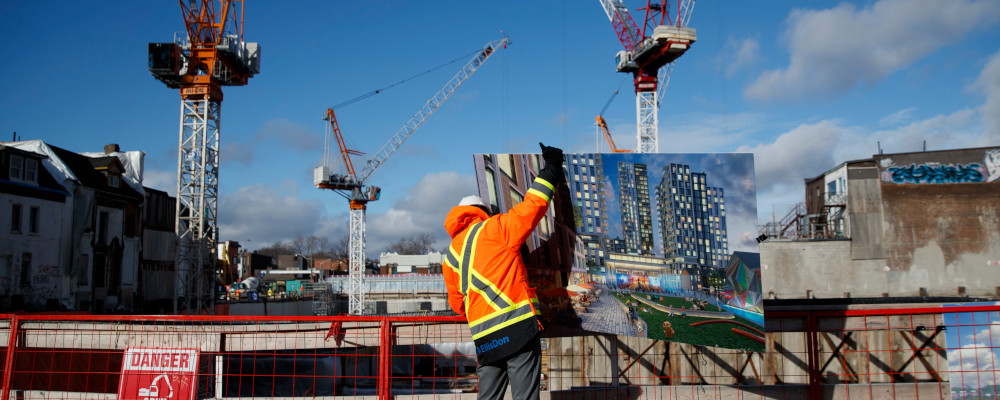As the Toronto mayoral election draws near, voters have a choice among candidates who profess to be the best equipped to fix our housing and transportation issues. Yet if history is any guide, it may be conservatives rather than progressives who are best placed to make significant strides in these areas.
Recent polling indicates a possible generational shift occurring within our politics, with millennials increasingly aligning with Pierre Poilievre’s federal Conservative Party due to perceptions of decreasing opportunities under the current Liberal government in Ottawa. Consequently, progressive mayoral candidates shouldn’t take the youth vote for granted, as young Torontonians may be growing weary of older progressives obstructing development and therefore prepared to consider more conservative candidates capable of delivering results.
The truth is that, notwithstanding their claims, left-wing politicians in the city have tended to be opposed to development. Jack Layton, for instance, famously campaigned against a downtown relief line, a stance that, in retrospect, seems ill-advised given the city’s persistent traffic congestion. Similarly John Sewell resisted the idea of increasing density in downtown neighbourhoods, despite urban living’s inherent reliance on efficient use of space. Councillor Josh Matlow’s opposition to density in his own downtown ward, and resistance to the Ontario Line project at Osgoode Hall and Moss Park, places him in a succession of left-wing politicians furthering policies at odds with the interests of the working class.
Take a concrete example. As important as affordable housing is, the Left’s insistence on quotas for affordable units in private developments has, at times, proven economically unfeasible and in turn impeded development rather than facilitating it. This kind of dogmatism seems like a losing proposition. What’s better? An affordable unit, or an undeveloped lot where a developer couldn’t afford to build? The answer seems self evident.
Conservative approaches, by contrast, have had a positive impact on Toronto’s housing and transportation sectors. The 1960s saw the development of St. James Town, a high-rise neighbourhood that provided much-needed housing for the city’s rapidly growing population. Later, in the 2000s and 2010s, the private CityPlace condo neighbourhood contributed additional housing capacity for newcomers to the city.
Moreover, the revitalization of Regent Park serves as a testament to the power of private enterprise. Once a troubled public housing development beset by crime and poverty, Regent Park has been transformed into a flourishing, mixed-income community thanks to the efforts of the Daniels Corporation.
Conservatives have also made significant advancements in transit. Doug Ford’s government initiated construction on the Ontario Line, a long-discussed downtown transit corridor. Additionally, the Eglinton Crosstown, a project overseen by Doug Ford and John Tory, leverages public-private partnerships to create what will be a more efficient transit system.

As voters assess progressive candidates advocating for housing and transportation solutions, it is crucial to remember therefore that actions carry more weight than words. Conservatives have a proven track record of achieving tangible results. This may be a decisive factor for those who prioritize these issues, including the younger Torontonians who are increasingly disillusioned with progressive promises at all levels of government.
There is a viable solution for voters who care about housing and transportation in Toronto. While the Left has historically excelled at capturing attention with ambitious goals, it’s conservatives who have begun to take action to actually address the housing crisis in the city. It’s time for progressive candidates to reconsider their approach or risk losing the support of the next generation.
Recommended for You

The Notebook by Theo Argitis: Carney’s One Big Beautiful Tax Cut, and fresh budget lessons from the U.K.

Ginny Roth: How vacant liberal nationalism left Canada worse off than George Grant even imagined

Peter Menzies: Justin Trudeau’s legislative legacy is still haunting the Liberals

‘Our role is to ask uncomfortable questions’: The Full Press on why transgender issues are the third rail of Canadian journalism



